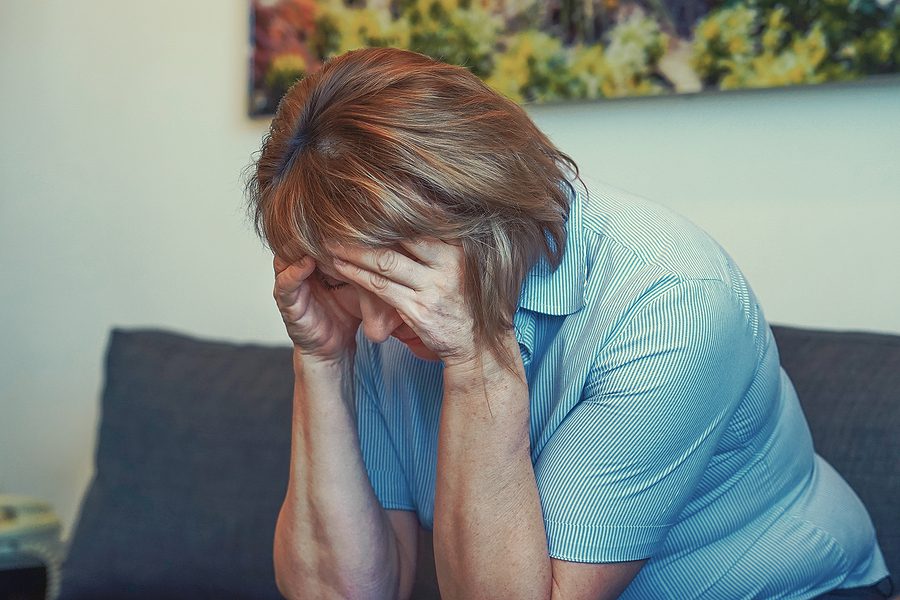Elder Abuse is a very serious issue and one that affects millions of elderly individuals every year. Over 10% of the country’s senior citizens will experience some form of elder abuse each year. Elder Abuse can come from nursing home attendants, trusted caretakers, neighbors, friends, or even family members. Abuse of the elderly can affect both men and women, almost equally. There are 5 main types of Elder Abuse: Emotional, Physical, Sexual, Financial, and Neglect & Abandonment. If you or a loved one is the victim of elder abuse, seek assistance. It is important to report the abuse and seek legal counsel.
Emotional Abuse
Emotional abuse in the elderly can have detrimental effects on their mental health. Many senior citizens that are emotionally abused can experience depression, anxiety, and the overall deterioration of mental health. This deterioration can include further complications, such as confusion, memory loss, and more.
Physical Abuse
Physical abuse is using any number of methods of physical harm toward the victim. These may include pinching, striking, kicking, burning, shaking, shoving, and beating. Injuries like bruises, head trauma, burns, and even broken bones are often signs of abuse. Generally, physical abuse can be the most easily identifiable form of elder abuse. But, clothing may hide signs of abuse. Victims may even go out of their way to cover up bruises or marks of abuse. Overall, it is important to recognize signs of physical abuse. This could include your loved one wincing more while moving, or wearing more layers than usual. Don’t be afraid to talk to your loved one if you suspect abuse.
Sexual Abuse
Sexual elder abuse is the assault of a senior citizen in a sexual manner. Common signs of sexual abuse in elders include infections of the genitals and/or anus, bruises on or around the thighs, and difficulty walking or sitting. This is often harder to notice than the other forms of abuse and is not uncommon for elderly individuals to stay silent regarding it. They may experience emotional or mental trauma from the experience as well.
Financial Abuse
Financial abuse of the elderly is the most prevalent type of abuse among the elderly. The misuse or theft of a senior citizen’s finances can constitute financial abuse. Generally, this may include the abuser taking money, cashing checks without permission, buying personal items with the elder’s money, coercion to sign legal documents, the direct transfer of money, etc. Financial elder abuse creates an estimated $36.5 billion loss for seniors yearly. Financial Elder Abuse could make it difficult for the victim to afford medications, treatments, or even basic necessities such as food or rent. Abusers will often take savings or valuables intended for heirs.
Neglect & Abandonment
The lack of care or treatment can also be abuse. Leaving elderly individuals alone and unable to take care of themselves is abuse. This can also include the failure to provide food, hygiene, safety, medications, etc. This can be intentional or unintended, but, it is serious either way. Bedsores, malnutrition, dehydration, sunken eyes, poor hygiene, and untreated medical conditions can all be signs of neglectful caretakers.
If You See Signs of Abuse
If you or a loved one is being abused, seek assistance. Legal action may be an avenue to recover stolen assets or for reparations. The National Center for Elder Abuse (NCEA) has resources for victims. These resources can help victims and their families accept and overcome the trauma of Elder Abuse. Safe Harbor Healthcare Services works hard to help ensure the overall safety of our staff. Our Certified Home Health Aides are licensed to work with the elderly and disabled. We also use background checks when hiring to help ensure the safety of our clients and their families.
Safe Harbor Healthcare Services does not provide medical, healthcare, or financial advice via articles. This material has been prepared for informational purposes only. It is not intended to provide, and should not be relied on for advice.
Safe Harbor Healthcare Services has been providing excellent home care on Staten Island since 1967. Our services help the elderly and disabled live safely and independently; while giving their families the peace of mind they need. For more information contact us by clicking here, or call (718)-979-6900.

